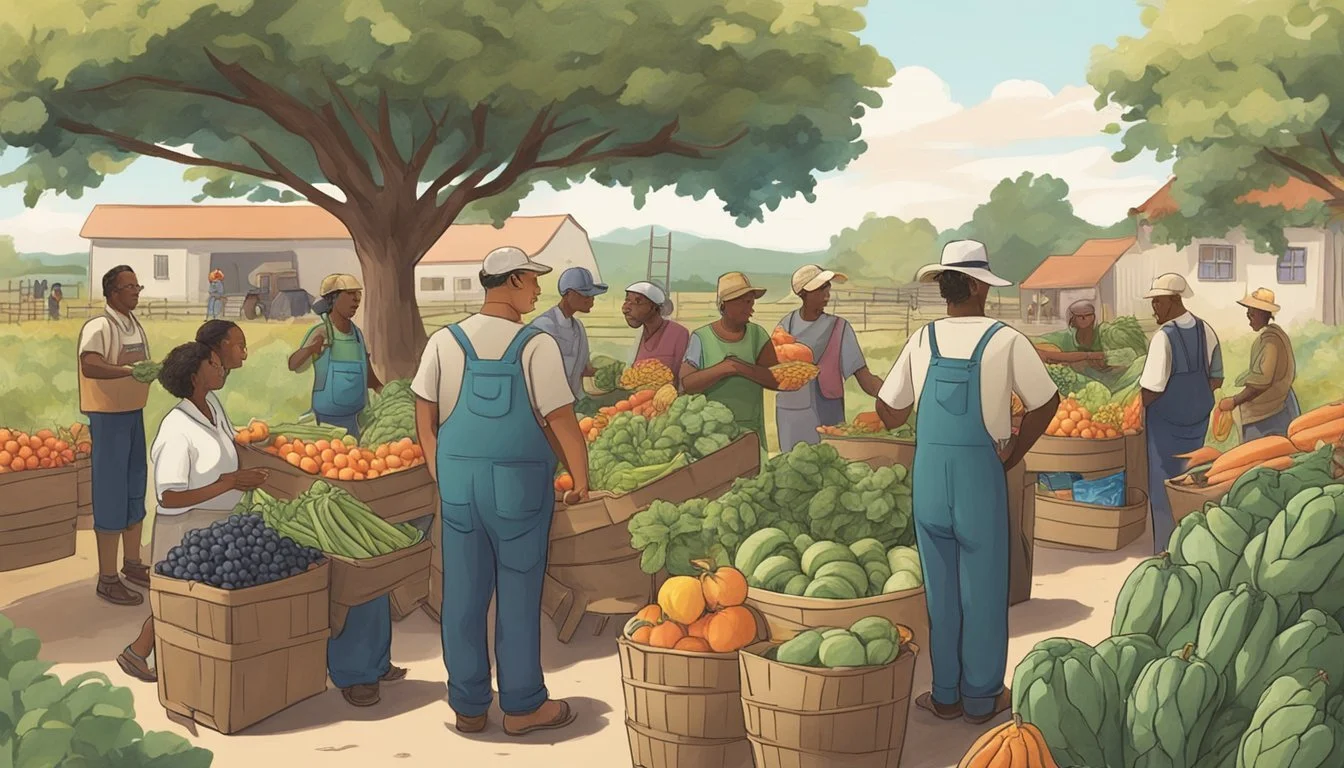Community Supported Agriculture (CSA) in Cary, NC
A Guide to Local Farm Partnerships
Community Supported Agriculture (CSA) thrives as an integral part of Cary, North Carolina's local food movement. By participating in a CSA, residents directly support local farms, fostering a sustainable food system and community resilience. Cary’s CSA programs enable individuals and families to purchase shares from local farms, entitling them to a season’s worth of fresh, locally-grown produce, and sometimes including other farm products like eggs, meats, and cheeses.
CSA programs in Cary often offer various share sizes to accommodate different household needs, with flexible pick-up times to ease into the weekly routine of members. For example, Good Hope Farm, nestled in Cary, extends a CSA produce box program during the spring and summer months, supplying residents with fresh, Cary-grown produce and cut flowers. This commitment to local agriculture not only bolsters the town's economy but also ensures that residents have access to the freshest and most nutritious produce available.
Through close-knit partnerships between farmers and the community, CSA models in Cary represent more than just a consumer-producer relationship; they are a testament to the collective investment in health, environment, and local agriculture. These programs manifest a shared belief in the importance of locally sourced food and a commitment to preserving Cary's agrarian heritage.
Understanding CSA in Cary, NC
Community Supported Agriculture (CSA) in Cary, North Carolina, embraces a cooperative relationship between local farmers and consumers. Members of the community purchase shares of a farm's harvest in advance. This system ensures farmers receive early-season capital and guarantees consumers a selection of fresh produce throughout the farming season.
In Cary, Good Hope Farm offers an 8-week CSA produce box through spring and summer, introducing residents to Cary-grown produce and cut flowers, and details for their 2024 CSA are anticipated. Another example is Old North Flower Farm, which specializes in cut flowers and supports the local floral industry.
Cost of Shares: Typically, a single share costs between $400-$700 annually, though this can vary. Consumers may have options to pay in installments, which broadens access.
Pick-Up: Shares are often collected by members at designated pick-up points. For instance, Good Hope Farm facilitates box collection on Thursdays with a flexible self-pickup time.
CSA in Cary provides a service model where:
Local farms are directly supported by the community.
Consumers enjoy fresh, locally harvested products.
A win-win situation fosters a sustainable local economy and farm-to-table freshness.
Participants in Cary's CSA programs experience the cycle of the seasons as reflected in their food, bringing a deeper connection to the sources of their nourishment.
Benefits of CSA for Local Farmers
Community Supported Agriculture (CSA) programs in Cary, NC, primarily benefit local farmers by enhancing their economic stability, advocating for sustainable practices, and connecting them closely with the community.
Boosting Local Farm Economy
Local farms, including Cary's Good Hope Farm, benefit from CSA models by receiving upfront capital at the beginning of the planting season. This immediate influx of funds aids farmers in covering the initial costs of seeds, equipment, and labor. Moreover, by selling directly to consumers, farmers can capture a higher percentage of the food dollar, boosting their overall income.
Promoting Sustainable Agriculture Practices
By participating in CSAs, local farmers are often encouraged to employ sustainable farming practices. This is not only beneficial for the environment but also aligns with consumer demand for eco-friendly farming. CSA members typically support farms like those cultivating organic produce on organic substrates, thus fostering methods that conserve soil health and biodiversity.
Strengthening Community Relations
CSAs serve as a bridge between farmers and the local community. For instance, farmers in Cary reinforce their ties with the community through CSA programs by providing regular updates on farm activities and inviting members to partake in farm events. This ongoing interaction builds trust and cultivates a loyal customer base.
Support for Specialty Crops and Products
Local farmers have the opportunity to diversify their offerings through specialty items like flowers, herbs, and gourmet edible mushrooms. CSAs allow for the introduction and education of consumers about these unique products. Good Hope Farm, as an example, may find that CSA patrons are more open to trying new varieties that aren’t typically found in grocery stores.
Encouraging Organic and GAP-Certified Farming
CSA partnerships often prioritize and support farming practices that meet organic and GAP (Good Agricultural Practices) standards. For instance, a CSA operated by a USDA certified organic produce farm or GAP-certified farm in Cary can thus assure customers of the safety and quality of their produce while maintaining a strong market for certified organic goods.
Championing Local Food Security
CSA models strengthen food security by ensuring a market for rural farmers' products and by distributing fresh, healthy food to the community, including to food banks when there are surpluses. By championing local food systems, CSAs contribute to the creation of a resilient food economy that can better withstand disruptions and provide for those in times of food insecurity.



